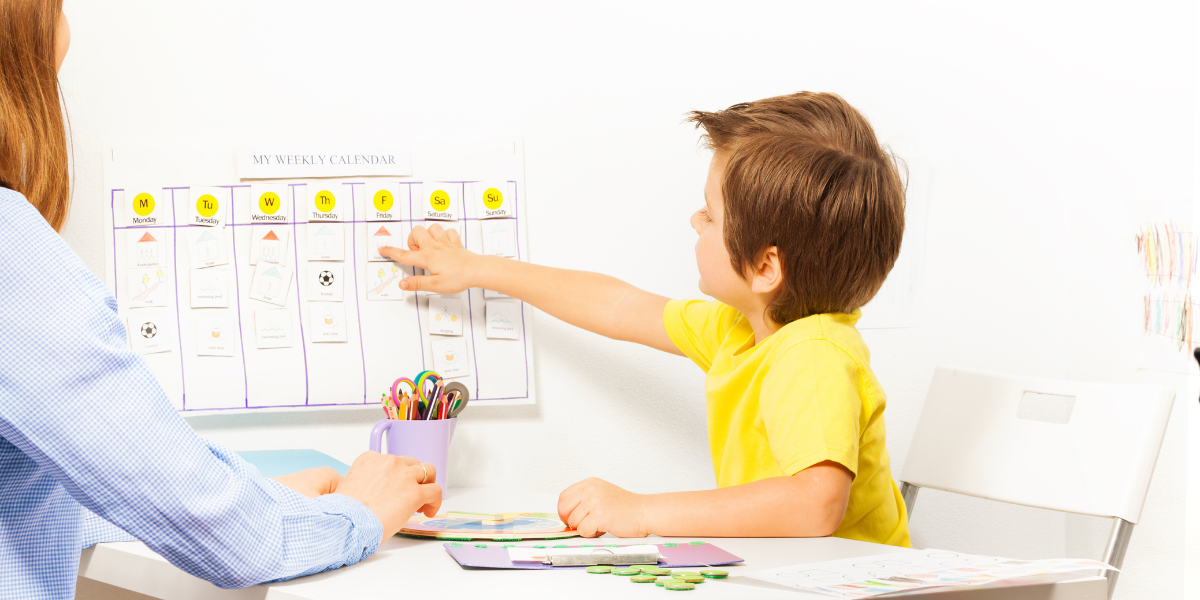
If your child is one of the millions diagnosed with anxiety, these tips may help.
Anxiety—the feeling of fear we have under stress—is a perfectly natural reaction that many of us exabit. However, some of us are diagnosed with anxiety disorders, meaning this feeling of fear is far more intense and stays with us long after the stress is over. As an adult, we can recognize this and work through anxiety and anxiety disorders, but what is the best wat to go about helping your child cope with anxiety?
It can be challenging for a child to open up to their parents about anxiety and stress at school. More often than not, they may not understand why they feel this way and thus become more inclined to keep it to themselves.
As a parent, being able to recognize the changing behaviors in your child that point to anxiety is only half the battle. Next is helping them manage the triggers. From a positive environment to a steady routine, these five tips can help ease your child’s stress levels:
1. Stick with a Schedule

Children need routines, and getting to school late, missing the bus, or forgetting they have basketball practice may easily ramp up your child’s anxiety.
Try following the “night before rule”—i.e., lunches can be packed, backpacks can be placed by the door, and clothes can be picked out the night before—can be a start for significantly reducing scheduling chaos stressors. The next morning, all your child has to do is wake up, get dressed, eat breakfast and be on their way to school.
On the same hand, nightly routines with set times for homework and bed can also greatly reduce your child’s anxiousness about the next school day. According to the National Sleep Foundation, there’s a two-way street between anxiety and sleep: kids who don’t get sufficient sleep are more susceptible to developing anxiety and also have more trouble adjusting to new circumstances over time.
Try to establish a bedtime routine for your family, put down all electronics by a certain time to start winding down!
2. Eat a Healthy Diet
The connection between body and mind is real and affects all people, so feeding your child junk food too much can affect their mind more than you think.
If your child is having a lot of anxiety, you may want to examine their diet. According to Harvard Health, low blood sugar, poor hydration, and caffeine can all precipitate or mimic symptoms of anxiety.
To help, here is a list of 5 great foods you can try to support your child’s mental and physical health:
- Blueberries
- Packed with antioxidants that support brain health
- Improve memory and cognitive function
- Help reduce stress and anxiety
- Boost overall brain performance and mental clarity
- Salmon
- Rich in omega-3 fatty acids, crucial for brain development
- Supports cognitive function and reduces inflammation
- Helps regulate mood and potentially decrease anxiety symptoms
- Promotes healthy brain cell communication
- Greek Yogurt
- High in probiotics that support gut health
- Linked to reduced anxiety and improved mental well-being
- Provides protein for stable energy levels
- Contains calcium for overall nervous system health
- Nuts (Especially Almonds)
- Excellent source of vitamin E and healthy fats
- Help stabilize blood sugar and prevent mood swings
- Contain zinc and selenium, which support brain health
- Provide sustained energy and help reduce anxiety symptoms
Remember, before making any dramatic changes to what your child eats, consult with your primary care physician.
3. Communicate

If there are changes that need to be made, communicate with your child about the adjustments you would like to implement to their routine, and break them down into simple terms if dealing with younger children. For instance, if you need someone else to pick your child up from school:
- Sit them down, away from noise and other distractions.
- Calmly explain what is going on.
- Inform them of who is picking them up from school and be specific. Make sure they know exactly who it is, and if they are small children, show them a picture to refresh their memory.
- Let them know when this will happen and how long this change will take place.
- Make sure to refresh their memory on the day of the event.
- Answer any questions they have.
Be sure to pay attention to your child’s feelings and plan for transitions on your end. Remember, children tend to forget even after all the planning in the world, so have a backup just in case. For instance, the ADAA recommends allowing extra time in the morning if getting to school is difficult.
And don’t forget to recognize and praise small accomplishments! This goes a long way in building self-confidence and minimizing worries.
4. Keep a Positive Attitude
Did you know children as young as five are able to grasp the principles of positive thinking? So, if you want to help your child cope with anxiety, the power of positive thinking is a good path!
When nurtured, positive thinking can be a powerful coping tool. This doesn’t mean ignoring all the negatives but rather helping your child acknowledge each situation and look at it productively.
5. Consider Enrolling Your Child in After School Activities
Sometimes anxiety can stem from social situations; but if your child gets to participate in an activity they love, it can actually be quite therapeutic for them! After school activities can help build confidence, teach your child how to interact with others and be part of a team.
Studies show that children enjoy attending school when they have fun after-school activities.
Try the Engineering For Kids Enrichment Classes to Help Your Child Cope with Anxiety

As mentioned above, after-school activities and enrichment classes are great ways to help your children stay busy, interact with other kids, and build their confidence—all in a structured and safe environment.
Our enrichment classes serve as the perfect win-win for parents and children alike. Contact your local Engineering For Kids to learn more!




